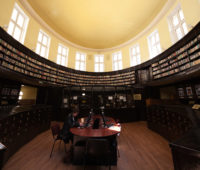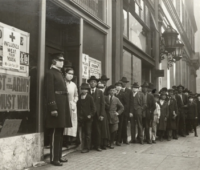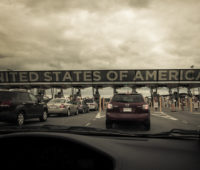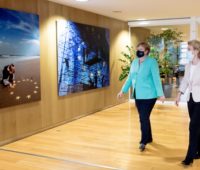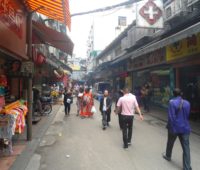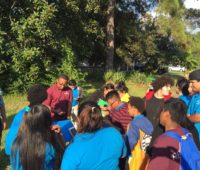For “Covid-19 and the Social Sciences,” Fotini Christia and Chappell Lawson address changes in research and impacts of the pandemic on fieldwork. They trace the shifts in research focus that it has produced and find opportunities in newly broadened methodologies, but warn of the dangers of neglecting non-Covid research and the traditional fieldwork that still remain essential to social science. They further outline ways to support the “Covid-19 cohort”—graduate students whose research has been undermined or transformed by global pandemic—in order to keep from losing an entire generation of fieldwork-based scholars and scholarship.
Starting with SSRC president Alondra Nelson’s reflections on “Society after Pandemic,” this series of essays explores the human, social, political, and ethical dimensions of Covid-19. These pieces call attention to how social research can shed light on the short- and long-term effects of the pandemic and what can be done to improve responses, both now and in the future.
The publication of this series would not be possible if not for the help of the following SSRC staff:
Juni Ahari, communications and editorial assistant.
Cole Edick, program associate, Anxieties of Democracy and Media & Democracy programs.
Carrie Hamilton, program assistant, Social Data Initiative and Media & Democracy program.
Saarah Jappie, program officer, Transregional Collaboratory on the Indian Ocean.
Michelle Lee, program assistant, International Dissertation Research Fellowship.
Line Sidonie Talla Mafotsing, communications and editorial assistant, African Peacebuilding Network and Next Generation Social Sciences in Africa.
Daniella Sarnoff, program director, International Dissertation Research Fellowship.
Catherine Weddig, program assistant, Social Data Initiative and Media & Democracy program.
Themes
Essays

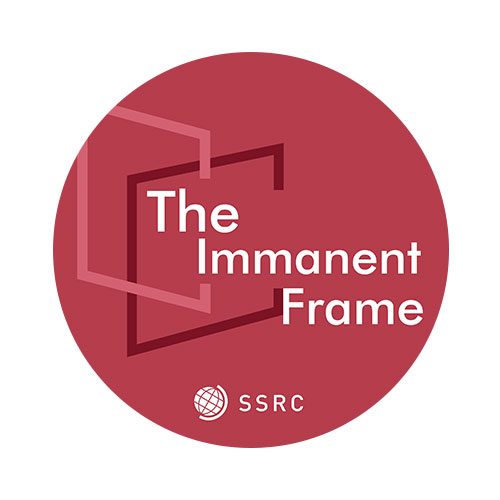
Digital Media, Religious Authority, and the Covid-19 Pandemic
by Ayala Fader and Items AdminIn a pandemic that isolates people from each other and their religious communities, digital media has made it possible to gather in ways that approximate face-to-face interactions. Zoom funerals, holiday celebrations, and worship are all par for the course these days. Yet there are all kinds of material properties and affordances that make every communication channel distinctive, and we do not know yet if or how digital practices during the pandemic will affect religious life in the long term. Ethnographers, even restricted as we are now from in-person research, are particularly well suited to studying how religious worlds lived on digital media might be changing in unexpected ways.

Flu Masks in Indiana during the 1918 Epidemic
by Ariel Ludwig, Jessica Brabble and E. Thomas EwingAmid the flu pandemic of 1918, face masks came to mark the intersection between public policy and personal action. In the burgeoning Covid-19 epidemic a century later, masks are once again central symbols of tensions between collectivism, public health, science denial, and fatal notions of personal freedom in the United States. Drawing on case studies of mediated mask debates in Indiana, Ariel Ludwig, Jessica Brabble, and Tom Ewing trace the effects of contentious mask debates in 1918, demonstrating the importance of consistent enforcement and complementary measures in fighting deadly disease.
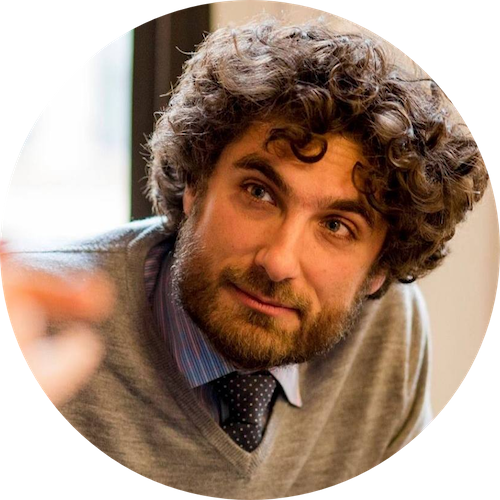
Covid-19 in a Border Nation
by Jacob A.C. RemesJacob Remes reflects on the significance of the United States as a “border nation” in the context of pandemic. While much media attention has been paid to the “bungling” of the US government response to Covid-19, Remes draws attention to the continuity between the Trump administration’s longstanding border policies. Taking this perspective highlights how disaster and public health responses have typically fit into the broader priorities and logics of governments and are often convenient amplifiers of xenophobic tendencies. Remes shows how these logics affect not only visible border policing, but can affect decisions such as whether companies from other countries can gain contracts for needed equipment or supplies, such as tests and treatments.

Populist, Technocratic, and Authoritarian Responses to Covid-19
by Claudia Landwehr and Armin SchäferCovid-19 threatens millions of people and has forced governments to adopt radical lockdown measures, risking unprecedented economic downturn. However, these measures draw upon a scarce resource: people’s discipline and willingness to put their lives on hold. Once patience wanes and restrictions trigger a blowback, no democratic government can enforce strict lockdown measures against a majority of its citizens. Here, Claudia Landwehr and Armin Schäfer explore policy decisions and their effects in the United States, United Kingdom, Hungary, Poland, and Germany. Each case study highlights the intersection between leadership and democratic governance and how these influence a country’s ability to combat Covid-19.

The Coronavirus and Innovation
by Scott E. PageScott Page, author of The Model Thinker, turns his thinking to responses to Covid-19 through the eyes of a modeler. Page argues that the way societies have engaged with the pandemic may produce innovations with effects that last beyond addressing the pandemic into areas such as health care, political participation, education, and more. Page highlights a series of models that can help to identify these innovations and their potential impact in the short and longer term.

Africa and the Geopolitics of Covid-19
by Gilbert M. Khadiagala and Bob WekesaThe Covid-19 pandemic has provoked multiple geostrategic uncertainties among nations and regions and schisms in various levels of global governance. Faced with the growing unpredictability of these developments, analysts are hard put as they gaze into the crystal ball to figure out global geopolitical trends and prospects in the coming months, let alone years. It is for this reason that just about every analysis over the last couple of weeks has cautiously inserted “if” into its projections.

Ethics of Transregional Research and the Covid-19 Pandemic
by Jamie MonsonJamie Monson, writing for our “Covid-19 and the Social Sciences” series, reflects on the transregionality that characterizes the Covid-19 era. The pandemic, she notes, has further underscored the imbalances of power and resources that structure relations among transregional partners in research collaborations. She argues that the pandemic requires us to take a hard look at the resource divides that constrain fully equitable participation in transregional social science research and calls for investments in robust and sustainable transregional research networks as an antidote to these inequalities.
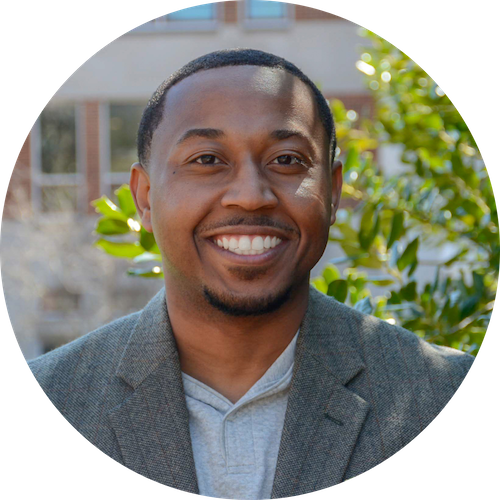
Transforming Public Safety and Urban Infrastructure to Mitigate Climate and Public Health Disasters
by Marccus D. HendricksMarccus D. Hendricks weaves together critical perspectives from public health, urban planning, and disaster studies in his essay for “Covid-19 and the Social Sciences.” In light of recent calls to defund the police, Hendricks urges us to closely examine how we define public safety, focusing in particular on the role of infrastructure in making communities safe. While the pandemic has highlighted the faults in healthcare infrastructure, housing, access to clean water, and other risks remain serious threats to health and well-being, especially in Black, Latinx, and low-income neighborhoods. Hendricks shows the continuity of the current struggles for justice, and how shifting priorities to the most urgent existential community threats would strengthen public health and safety.

History Lessons: Can We Learn from the Past?
by Rosemary C. R. TaylorIn this “Covid-19 and the Social Sciences” essay, Rosemary Taylor delves into comparisons of Covid-19 with other major diseases in world history, from the Spanish Flu to SARS. She notes that history often fails to teach leaders and experts the “lessons” we might expect, arguing that institutional actors are likely to hold on to longstanding, culturally ingrained methods of disease management. She notes that new popular understandings about diseases (such as animal-human transition) have led to complicated policy responses with mixed results, concluding that while history may not always clearly tell us what to do, it can warn us about impending challenges. Importantly, it reminds us to pay close attention to repairing social conditions that made us vulnerable to a pandemic in the first place.

